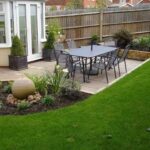Frequently Asked Questions
FAQs
What is Vastu?
What are the benefits of Vastu?
My house is a South-facing one with entrance at South-South-East. I read lot of books on Vastu. They generally consider south as bad direction. Then what shall be ideal entrance for a South-facing house?
Why one should refer to Vastu?
I don’t have any space for a separate prayer room in my flat. Can I make it in my bedroom? Is there any other option available?
The most suitable location for a separate prayer room in a house is the North-East corner. If there is not enough space for a separate prayer room, then the temple can be placed in the North-East corner of the kitchen. It is important to avoid locating the prayer room above, below, or next to a toilet, and it should not be placed under a staircase.
My Child doesn’t concentrate on studies. Can Vastu help on this regards?
Listed below are some Vastu recommendations to enhance a child's intellect and focus:
• Ensure that the child's room is not located in the North-West area of the house.
• The ideal direction for the child's room is West, although North or East could also work.
• The entrance to the child's room should be situated in the North, East, or North-East area.
• While studying, the student should face towards the East.
• When sleeping, the student's head should be positioned towards the East.
I have a Gomukhi Plot. Is it good for residential purpose?
Is it possible that there is a Vastu defect in my portion of the ancestral house? My brother and I mutually agreed to divide the property after our father's passing, but since then, my fortunes have been on the decline while my brother's life and business are prospering.
What is the reason behind the recommendation to avoid sleeping with your head pointing towards the North? And what is the ideal sleeping position recommended instead?
Vastu is currently receiving a lot of attention and hype, but what exactly is Vastu, and what does it represent or signify?
While an architect can design a comfortable and well-equipped house, they cannot guarantee the inhabitants will experience peace, happiness, and contentment. However, Vastu can ensure this emotional balance. This is the crucial difference between Vastu and traditional architecture.
Ever since I moved into my new apartment, I've been encountering various issues. I suspect that there may be some Vastu flaw in my home, but I'm hesitant to seek advice from a Vastu Consultant because I cannot make any alterations or modifications to my society flat. Are there any alternative methods to address Vastu defects?
Do not believe that Vastu Consultants will always recommend tearing down or modifying your property.
In fact, most Vastu Consultants are aware of the difficulties and concerns that homeowners face. They
typically work with the movable elements of the building, such as furniture placement, color schemes,
pyramids, water fountains, aquariums, and wind chimes, which can be used to correct any Vastu
defects. These alternative therapies are effective on their own and can resolve Vastu issues.










